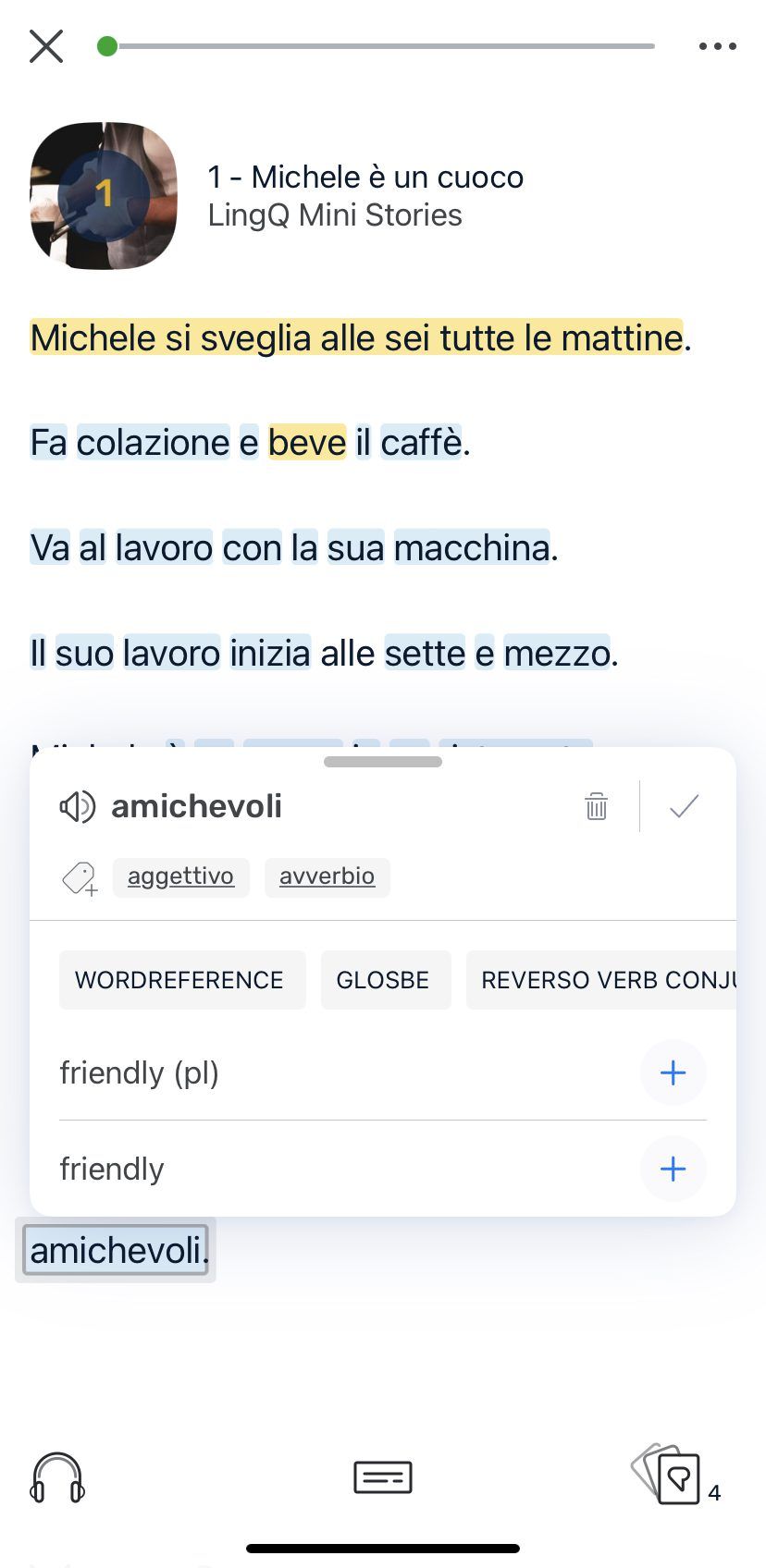Terms of Endearment in Italian: Sound Like a Native Speaker!
Learning terms of endearment in Italian is an important part of becoming fluent. If you don’t use such expressions, you may sound too formal and end up labelled as unapproachable.
Just think about how you behave when you’re interacting with your friends in your native language. Do you always address them by their full name or do you use nicknames? How often do you express your affection towards someone?
Be careful, though! Only some terms of endearment translate directly across languages. For instance, it is perfectly acceptable to say in Italian “sei un angelo” to someone you are grateful to, just like you would say “you are an angel” in English. However, the Italian term of endearment “polpetto”, (derived from “polpetta” meaning “meatball”) is a cute way of expressing affection, which would not translate well into English.

Terms of Endearment in Italian for Friends
In Italy you will hear people referring to one another using the word “caro” for a man and “cara” for a woman. They are equivalents of the English word “dear” often used among friends in speech and as a form of address in letters.
Some speakers consider “cara” and “caro” quite intimate and save them for their closest friends only, others use it with almost everyone they know. If you are concerned about sounding too forward, wait until someone addresses you in this way first.
“Caro” and “cara” are also often combined with other words to form expressions of affection such as “caro amico” (“dear friend”) or “caro mio” (“my dear”), with the female corresponding forms of “cara amica” and “cara mia”.
Other common Italian words of endearment are “bello” and “bella”, respectively male and female versions of the word “beautiful”. They tend to be used casually, especially among women. In terms of cross-gender communication, you should be a bit more careful. You don’t want to express a romantic interest in someone when you are just trying to be friendly. The same piece of advice holds true for expressions such as “tesoro” (“treasure”) and “amore” (“love”), which have only one form for both genders.

TIP: If you are trying to sound natural, do not shy away from listening to how people speak. You will learn what is and what is not acceptable within a particular group or in a region. Listen out for nicknames and abbreviations of names to sound even more like an Italian native speaker. When you are not sure whether something is appropriate or not, just ask. Italians are usually very friendly towards people who make an effort to learn their language.
Italian Terms of Endearment for More Than Friends
They say that French is the language of love, but let us not forget about other Romance languages, Italian included. It is a very prolific language in terms of expressions of affection towards a loved one.
People in love, just like friends, use the already enumerated terms: “caro”/”cara”, “bello”/”bella”, “tesoro” and “amore”. However, there are more poetic ways to address a partner. When someone refers to another person per “Cuore mio” (“my heart”), “Vita mia” (“my life”), “Anima mia” (“my soul”) or “Luce dei miei occhi” (“light of my eyes”), it is rather obvious that they cannot live without one another. Italians also often use diminutive forms of words for animals or food as terms of endearment. Some of them are simply created by adding the suffix –ino (or –ina):
Cioccolato (chocolate) -> cioccolatino
formaggio (cheese) -> formaggino
zucchero (sugar) -> zuccherino

Other Italian romantic nicknames (nomignoli amorosi) are used specifically for females: “dolcezza” (literally: sweetness), “gioia mia” (“my joy”) or “bellissima” (“very beautiful”) to give a few examples. A similar expression is “farfallina” (“little butterfly”) but be careful with this one. While the latter is a cute way of showing affection towards a woman, another noun derived from the same word “farfalla” (“butterfly”) has a completely different meaning… “Farfallone” means a “womanizer” or a “playboy” so do not use it, unless you are consciously trying to offend someone!
Italian Terms of Endearment for Children
“Mamme” (plural from “mamma” meaning “mommy”) all around the world refer to their children (“bambini”) in their own special ways. There are also expressions used by Italians in general to refer to children.
The first one that comes to mind is “piccolo” for a boy or “piccola” for a girl, which literally means “little”. “Mimmo” or “mimma” is another way to say “child” but it is more affectionate than “bambino” or “bambina”.
A lot of baby nicknames come from the animal kingdom. Among the most popular expressions of affection are “passerotto” or “passerotta” (male and female for “little sparrow”), “topolino” and “topolina” (male and female for “little mouse”), “cucciolo” (a little animal, usually a dog) and “gattino” or “gattina” (male and female for “kitten”).
Some other cute words used to refer to children are related to food. An Italian mamma will often call her baby “patatino” or “patatina”, which means “little potato” or “fragolina” (“a little strawberry”).

Italians are considered an affectionate and warm people. This is why it is important to incorporate relevant vocabulary if you want to express yourself more naturally in Italian. Knowing such expressions as the ones outlined in this post will also allow you to better understand what is happening around you.
Why not try to guess a relationship between people next time you hear someone having a conversation in Italian by listening for terms of endearment? I know that the number of words and phrases in this article may be overwhelming, but no one expects you to learn them by heart immediately! Piano, piano, tesoro and do not forget to have fun while learning Italian!
P.S. Once you’ve got these terms down packed, up your level of fluency and impress even more of your friends saying a few Italian jokes. A sense of humor can go a long way.
How to enjoy 1000s of hours of Italian Content
Want to gain access to more Italian content? Check out LingQ.
LingQ is full of lessons that have been recorded and transcribed by native Italian speakers. Lessons are easy-to-read and listen to, making sure you actually learn! Not only that but you can import your own content into LingQ and create your own lessons to study from.

LingQ’s language learning apps are available for both Android and iOS. Take your lessons on the go and study anytime, anywhere. Good luck.
***
Magdalena Osiejewicz-Cooper has lived in Bologna and Palermo. Apart from Italian she speaks fluent Polish and French. She is currently self-studying Spanish.

